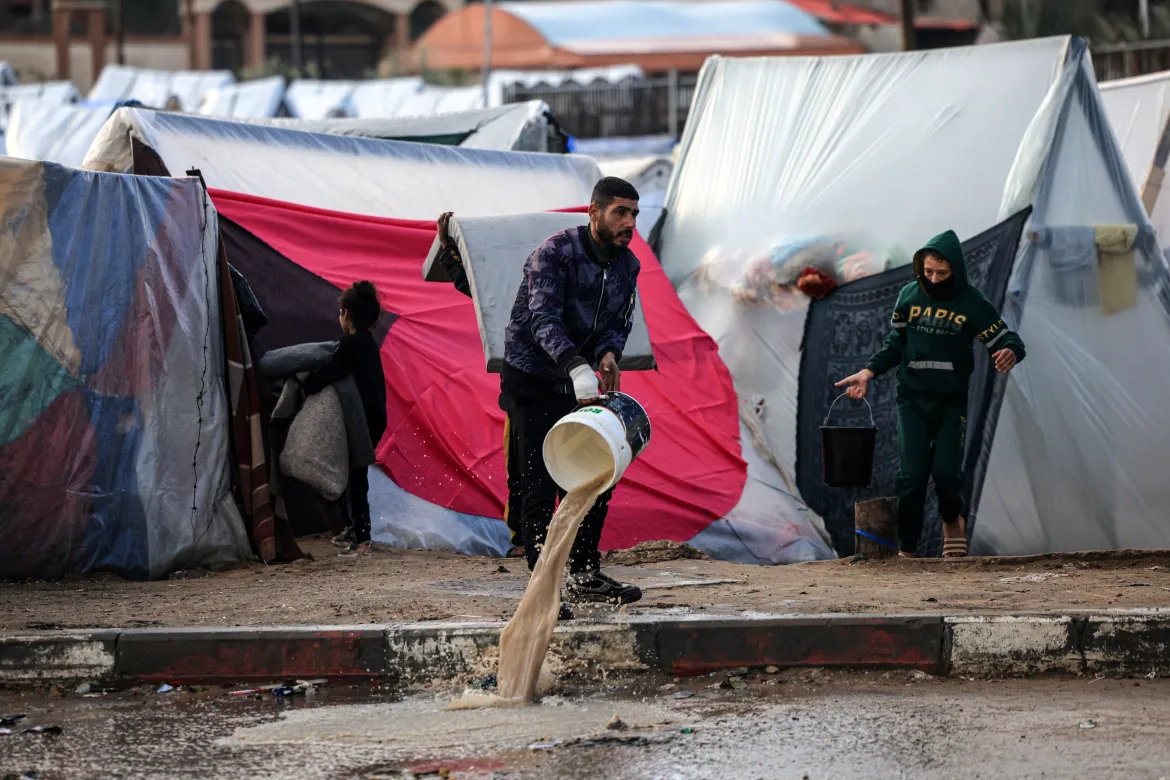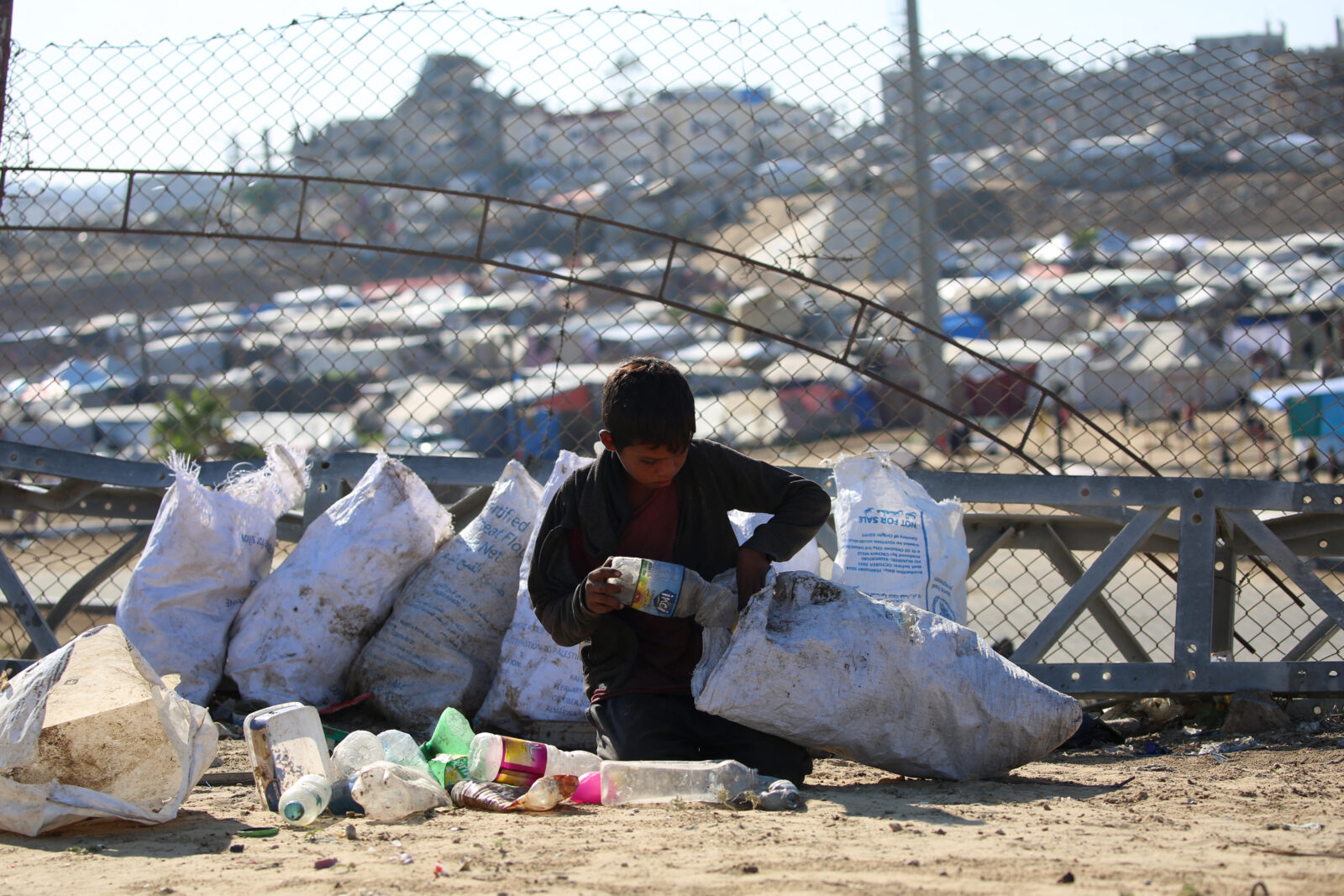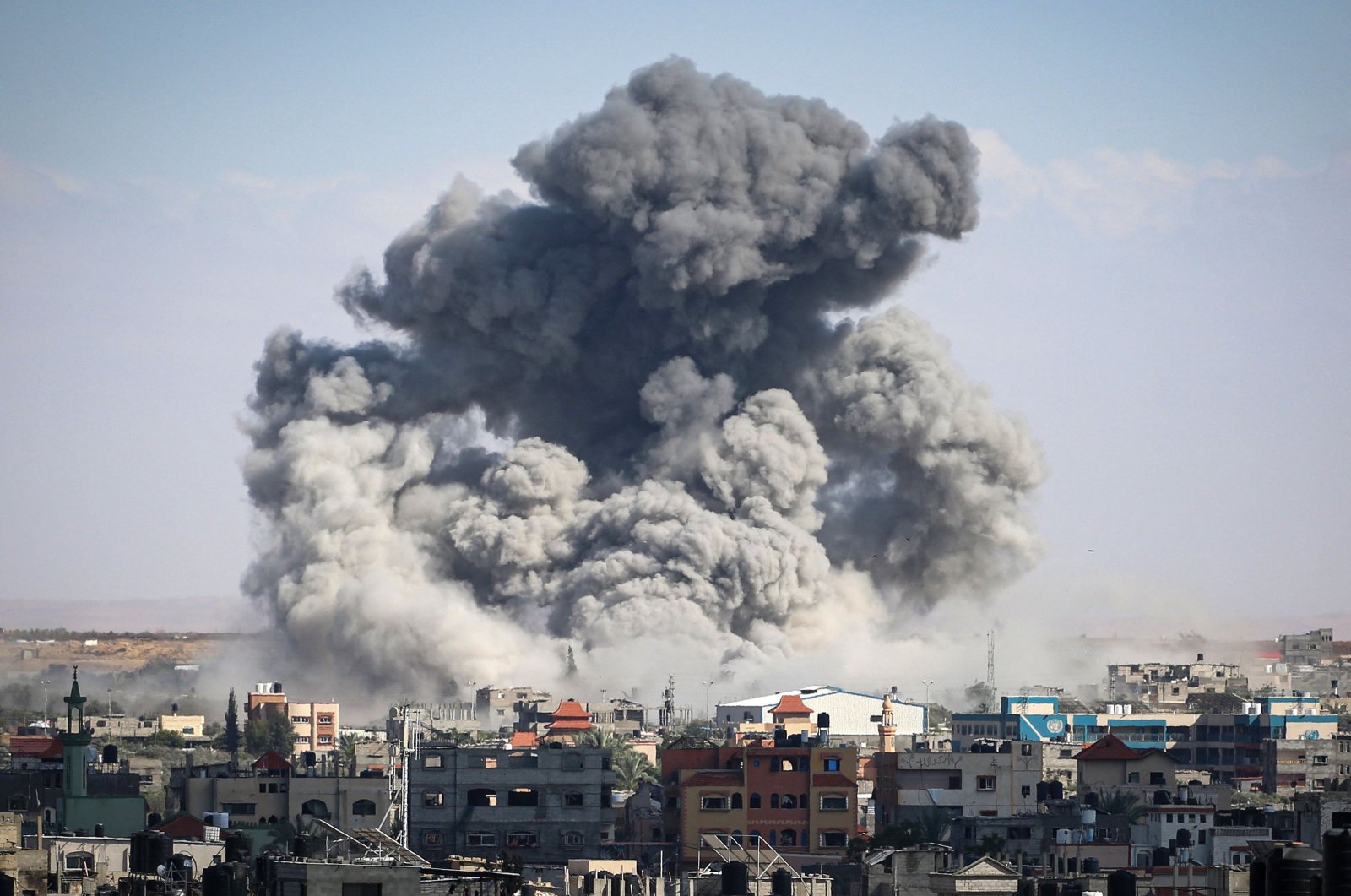Gaza on verge of environmental disaster: Bodies pile up as Israeli assault intensifies
 A Palestinian child sits amid the rubble in front of a heavily damaged house following an Israeli strike in the Bureij refugee camp in the central Gaza Strip on November 17, 2024. (AFP Photo)
A Palestinian child sits amid the rubble in front of a heavily damaged house following an Israeli strike in the Bureij refugee camp in the central Gaza Strip on November 17, 2024. (AFP Photo)
Gaza faces an escalating environmental disaster as a result of Israel’s prolonged military offensive.
Humanitarian organizations, environmental experts and local authorities describe the region’s devastation in stark detail.

CO2 emissions, destruction of Gaza’s infrastructure exacerbate environmental disaster
Since Oct. 7, 2023, Israel’s military campaign in Gaza has caused severe environmental damage and destruction.
According to Gaza’s government media office, Israeli forces have dropped 75,000 tons of explosives on the region, a volume surpassing the bombs dropped on Hiroshima during World War II.
This has generated an estimated 23 million tons of debris and released 281,000 metric tons of carbon dioxide into the atmosphere during the first two months of 2024 alone—equivalent to the annual emissions of some countries.
A Queen Mary University study estimates that between 54% and 66% of Gaza’s buildings have been either damaged or destroyed. Rebuilding these structures will release an additional 46.8 to 60 million tons of CO2, worsening the environmental crisis.


Israeli forces’ white phosphorus bombs, toxic dust worsen environmental disaster, pose health risks
Israel’s use of white phosphorus bombs in heavily populated areas has intensified the environmental crisis.
Amnesty International documented their use, warning that these munitions devastate vegetation and pollute water sources. Over time, white phosphorus contributes to abnormal growth in plants and algae, disrupting ecosystems.
Air pollution from bombardments releases toxic dust containing carcinogens like asbestos, contaminating soil, air and water. Experts warn that these pollutants increase the risk of respiratory diseases and cancers for humans and animals.

Gaza’s waste management and water systems collapse, intensifying public health risks
Gaza’s waste management systems have been severely damaged, resulting in 100,000 tons of uncollected solid waste, according to the Gaza Municipality. Medical and radioactive waste compounds the problem, spreading diseases such as hepatitis B and C.
Water infrastructure has been largely destroyed, with 67% of water and sanitation facilities damaged. The United Nations Relief and Works Agency (UNRWA) reported that Gazans now receive only 4.74 liters of water per day, far below the 15 liters required for basic survival.
Contaminated water sources have increased the risk of cholera, typhoid, and polio outbreaks. Israeli forces have targeted water distribution lines, further worsening the crisis.

Piled-up bodies create urgent health crisis in northern Gaza
Dead bodies remain uncollected in northern Gaza, creating severe environmental disasters and health hazards. Mohammed Abu Afsh, head of the Gaza-based Medical Relief Organization, states that stray animals are feeding on these bodies, raising the risk of disease outbreaks.
He stresses the shortage of surgeons and critical medical supplies, as hospitals are repeatedly targeted by Israeli forces.
The United Nations has condemned Israel’s blockade, which has prevented humanitarian aid, including food, fuel, and medical supplies, from reaching Gaza. Approximately 400,000 civilians remain trapped in famine-like conditions.

Environmental impact of conflict affects neighboring regions
Gaza’s environmental crisis is not contained within its borders. The collapse of wastewater treatment facilities has caused 130,000 cubic meters of untreated sewage to flow daily into the Mediterranean Sea.
This pollution endangers marine ecosystems and affects water sources in neighboring regions, including Egypt and Israel. Wildlife dependent on Gaza’s wetlands faces heightened risks from toxic runoff.
Military activities have increased greenhouse gas emissions significantly. Wildfires sparked by cross-border attacks in Israel and Lebanon have destroyed thousands of hectares of forest, reducing the region’s capacity to absorb CO2.

Global calls for Israeli forces’ accountability as Gaza’s crisis deepens
The International Criminal Court (ICC) has issued arrest warrants for Israeli leaders for alleged war crimes and crimes against humanity.
President Recep Tayyip Erdogan, speaking at the COP29 climate summit, called for international courts to hold Israel accountable for environmental destruction. Erdogan emphasized the far-reaching damage caused by the conflict, urging immediate global intervention.
While Gaza’s humanitarian and environmental crises worsen, the international community is expected to address the immediate suffering of its people and the long-term ecological consequences of the war. Without urgent action, Gaza’s environment may become uninhabitable for generations.



